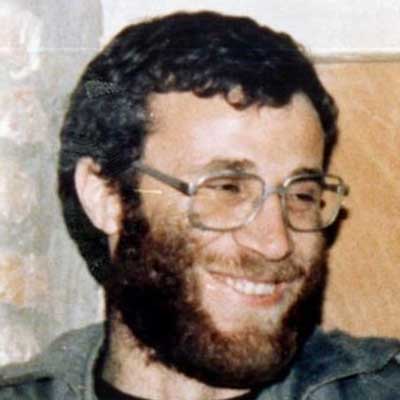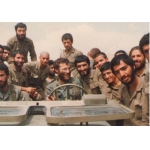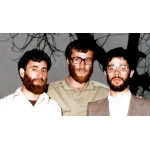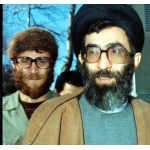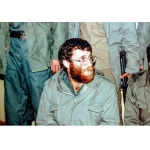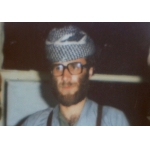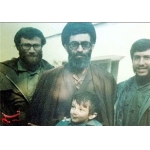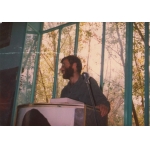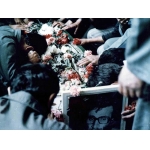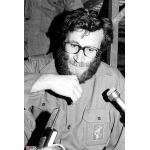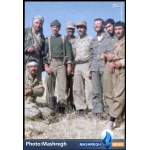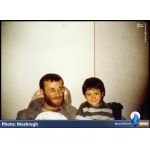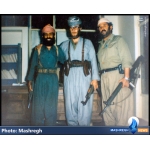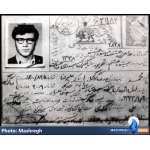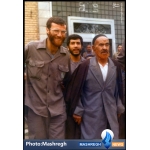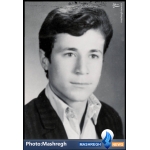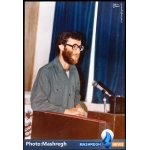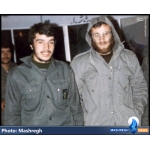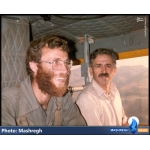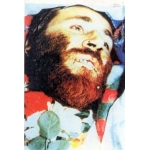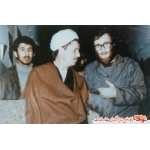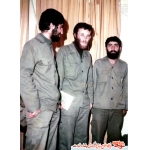Boroujerdi, Muhammad
Masoumeh Abedini
719 بازدید
Muhammad Boroujerdi (1954-1983) was one of the founders of the 155th Independent Martyrs Brigade and served as the Deputy Chief of Operations Headquarters on the Western Front, as well as the Deputy Commander of Hamzeh Seyyed al-Shuhada (as) Headquarters during the Iran-Iraq War.
Born on March 21, 1954, in the "Darreh Gorg" village of Boroujerd County, Muhammad lost his father when he was just six years old. He began his primary education in his hometown, but his family soon moved to Tehran in search of better living conditions. Muhammad continued his education in Tehran until he was eleven, but due to financial difficulties, he had to leave school and work alongside his brother to support the family. Before joining his brother in a tailor shop, he worked as a street vendor. Despite these challenges, he managed to continue his education by attending night school.
As a teenager, Boroujerdi became involved with Islamic teachings, regularly attending mosques and listening to the speeches of religious leaders. At the age of seventeen, he married his cousin, and they had two children: a son named Hussain and a daughter named Somayeh.
In 1972, Boroujerdi was conscripted into the military. After some time, he deserted and tried to cross into Iraq to meet Imam Khomeini (ra), but was arrested at the Iran-Iraq border. As a result, he was imprisoned for six months by the SAVAK in Susangerd, where he endured severe torture. Following his release, he was sent back to Tehran to complete his military service.
Once his military service was finished, Boroujerdi resumed his activities against the Pahlavi regime. While working at a furniture factory, he secretly distributed revolutionary pamphlets and recordings of Imam Khomeini’s speeches, which he concealed beneath the furniture’s fabric. During this period, he collaborated with notable figures like Hajj Mahdi Araqi (who was martyred on August 26, 1979), and through Araqi, Boroujerdi became connected with the Islamic Coalition Association (Motalefe).
In 1977, Boroujerdi left Iran for Syria, where he met figures such as Musa al-Sadr, Muhammad Montazeri, and Dr. Mustafa Chamran, enhancing his military and partisan skills. He attempted to travel to Iraq via Syria to visit Imam Khomeini (ra) but was unsuccessful and returned to Iran.
Following the popular uprising on January 9, 1978, in Qom, Boroujerdi intensified his revolutionary activities, continuing until the victory of the Islamic Revolution in 1979. With the help of like-minded friends, he founded the "Towhidi Saf" group, which, on April 5, 1979, merged with six other revolutionary groups to form the Mojahedin of the Islamic Revolution Organization.
On February 1, 1979, the day Imam Khomeini (ra) returned to Iran, Boroujerdi joined the welcoming committee at the suggestion of Dr. Muhammad Beheshti (martyred in 1981) and Hajj Mahdi Araqi. He was responsible for protecting Imam Khomeini (ra) and, dressed in clerical garb and armed, mingled with the crowd.
During the pivotal days of February 10-11, 1979, Boroujerdi played a key role in the seizure of Jamshidiyeh Barracks in Tehran and the liberation of the national radio and television headquarters, where he was wounded in the leg.
After the Revolution, Boroujerdi was appointed as the head of Evin Prison, marking his first official position. He was one of the founders of the Islamic Revolutionary Guard Corps (IRGC) and later became the Deputy Commander of Operations at Tehran’s Valiasr (as) Garrison. After Imam Khomeini (ra) issued a command on August 16, 1979, to suppress anti-revolutionary rebellions in Kurdistan, Boroujerdi, along with a group of IRGC forces, was dispatched to the region. Their efforts in clearing Kurdistan of anti-revolutionary forces and defending the country against Iraqi invaders became legendary, earning Boroujerdi the nickname "The Christ of Kurdistan."
Following the approval of his plan by the Supreme Council of the IRGC, Boroujerdi established the "Muslim Peshmerga of Kurdistan Organization" and was appointed its commander. He also served as the commander of operations in Kurdistan, the Deputy Chief of Operations on the Western Front, and the Deputy Commander of Hamzeh Seyyed al-Shuhada (as) Headquarters. In addition, Boroujerdi co-founded the 155th Independent Martyrs Brigade and briefly commanded the 7th Division of the IRGC, which covered operations in Hamedan, Kermanshah, Kurdistan, and Ilam.
In addition to his crucial role in combating anti-revolutionary forces in Kurdistan, Boroujerdi was involved in the planning and execution of military operations such as Muhammad Rasulullah (pbuh) on January 2, 1982, Fath al-Mobin on March 22, 1982, and Beit al-Muqaddas on April 30, 1982, along the southern borders of Iran and Iraq.
Throughout his military career, Boroujerdi sustained multiple injuries. His hand was severely wounded during an Iraqi attack on Sarpol-e Zahab, but he refused to leave the area until the city was secured. On another occasion, his helicopter was shot down by enemy forces in Sanandaj, but he survived the attack.
On May 22, 1983, while scouting a new location for the Seyyed al-Shuhada (as) Brigade along the Mahabad-Naqadeh Road with several comrades, their vehicle struck an anti-tank mine, leading to Boroujerdi’s martyrdom. After a grand funeral procession in Sanandaj, his body was transported to Tehran, where he was laid to rest in Section 24 of Behesht Zahra Cemetery.[1]
[1] A Summary of an Article Published in the Encyclopedia of the Islamic Revolution, Vol. 1, Tehran, Sureh-Mehr, 2005, Pp. 157-158.


